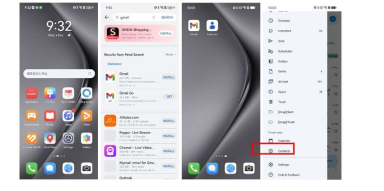Email Etiquette for International Business Communications
- الصفحة الرئيسية
- مدونة
- Email Etiquette for International Business Communications
Writing effective emails is crucial in international business. Understanding proper email etiquette helps foster clear communication and build strong relationships. This blog provides essential tips for writing professional emails and highlights common email mistakes to avoid.
Clear and professional email communication is vital in global business. It ensures accurate transmission of information and reflects your company’s professionalism. Proper email etiquette impacts professional relationships and business success.
Emails serve as a primary communication tool in international business. They allow businesses to share information quickly and efficiently across different time zones and geographical locations. Emails create a written record, ensuring nothing important is lost in translation.
Poor email etiquette can cause misunderstandings and damage business relationships. Unclear, informal, or poorly structured emails can confuse the recipient and reflect negatively on your professionalism. Inconsistent communication might even lead to lost business opportunities.
Consistently sending well-crafted emails builds trust. It shows your respect for the recipient’s time and attention. When people trust your communications, they are more likely to engage and collaborate positively. Trust lays the foundation for successful long-term business relationships.
Writing effective business emails involves clarity, proper structure, and an understanding of your audience. Ensuring your emails are easy to read and professional sets the stage for successful communication.
Avoid jargon or complex words that might confuse the recipient. Be direct and focus on your message, ensuring every word adds value. Clear and concise language prevents misunderstandings and keeps the recipient engaged.
Start your email with a respectful salutation such as “Dear Mr. Smith” followed by a polite closing like “Best regards.” Proper greetings show respect and set a professional tone for your communication.
Adjust the tone according to your relationship with the recipient and the context of the email. In international communication, it’s safer to maintain a formal tone, especially in initial interactions. Matching the recipient’s formality level shows your understanding and respect of their business culture.
Break your email into short paragraphs, each focusing on one idea. Use bullet points for lists to make the content easily scannable. Ensure that your main points are evident so the recipient can quickly grasp the message.
Understanding common mistakes in email communication can help you avoid pitfalls and maintain professionalism.
In business emails, using informal language can come across as unprofessional. Avoid slang, overly casual greetings, and emojis. Stick to formal language to maintain respect and clarity.
Different cultures have different business etiquettes. Not considering these differences can lead to miscommunication and offense. Research your recipient’s cultural norms to tailor your communication accordingly.
A well-crafted subject line is crucial as it’s the first thing your recipient sees. Ensure it’s clear, concise, and relevant to encourage the recipient to open the email. A good subject line sets the tone and provides context for the email.
Adjusting to cultural differences in email communication can make or break your international business relationships.
Being aware of cultural sensitivities is key. For example, some cultures prefer more formal and direct communication while others might value a more personal touch. Understanding these nuances helps you tailor your emails appropriately.
Adapt your style to match the recipient’s cultural expectations. For instance, while Americans might appreciate straightforward communication, Asian cultures may prefer a more nuanced and respectful approach.
In Japan, addressing someone by their last name followed by “san” is respectful. In Germany, using formal titles and last names is common until a relationship is established. Understanding these specific etiquettes demonstrates respect for other cultures.
Maintaining organization in email communication is essential for efficiency and professionalism.
Organize your inbox with folders and labels by project, client, or priority. This helps you quickly locate emails and ensures you don’t miss important messages or deadlines.
If using the gmail app for huawei, take advantage of its features like snoozing emails, adding labels, and smart replies. These tools help you manage and respond to emails efficiently.

Promptly responding to emails shows you value the sender’s time and reinforces your professionalism. Even if you can’t provide a complete answer immediately, acknowledge receipt of the email and outline when you’ll respond.
Clear and professional emails build trust and convey respect, crucial for international business relationships. Pay attention to language, structure, and cultural differences to avoid common mistakes. Organizing your emails efficiently and responding promptly further strengthens your communication. Mastering email etiquette will enhance your global business efforts and foster successful collaborations.